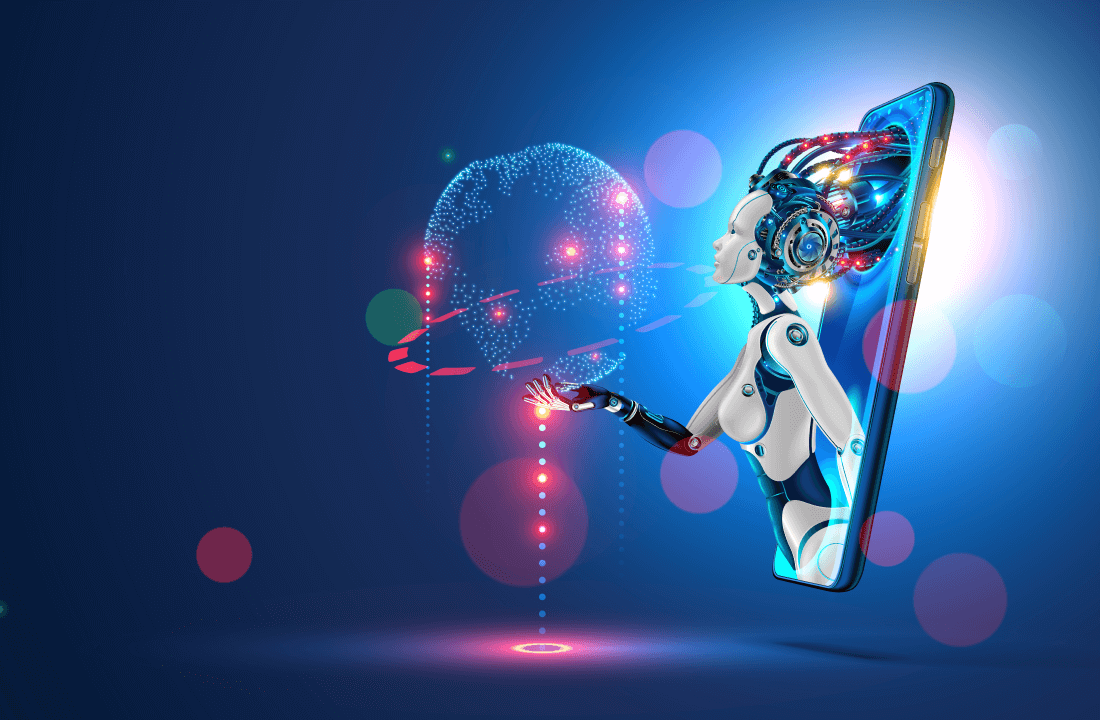ChatGPT in software development: benefits, challenges, and prospects

In the changing landscape of modern-day software development, we are constantly seeking novel approaches to enhance overall productivity and accessibility of our prospective projects, and tackle complex challenges.
ChatGPT holds impressive potential for revolutionizing the evolving information and technology industry. ChatGPT leverages artificial intelligence to enhance software development, quality assurance, and other everyday challenges.
But first things first, what is ChatGPT actually?
ChatGPT is an advanced language model by the OpenAI laboratory, which utilizes deep learning to generate human-like responses, offering applications such as answering questions, providing explanations, and others. The solution is being actively used by both average users and professionals all across the globe, showing some great opportunities for different industry verticals.
Practical application
Code writing
Code writing is an essential component, which comprises various aspects that require considerable dedication. These include requirement clarification, architecture design, performance optimization, third-party integration, and other coding-related components, where using artificial intelligence to empower software developers might be quite helpful.
At this project stage, ChatGPT can be used to accelerate:
- Project planning – IT teams can refine their ideas with the chat model to discuss initial pseudocode, UI/UX design, high-level architecture, and other complex aspects to facilitate project planning
- Syntax assistance – the solution might assist with different syntax-related questions, specific features, and guide on industry’s best practices
- Algorithmic problem-solving – software developers can explain algorithmic problems to the AI interface to discuss potential structures
- Automatic documentation strings generation – software developers can utilize natural language processing capabilities of the AI interface to create code snippets, analyze context, and understand intended functionality
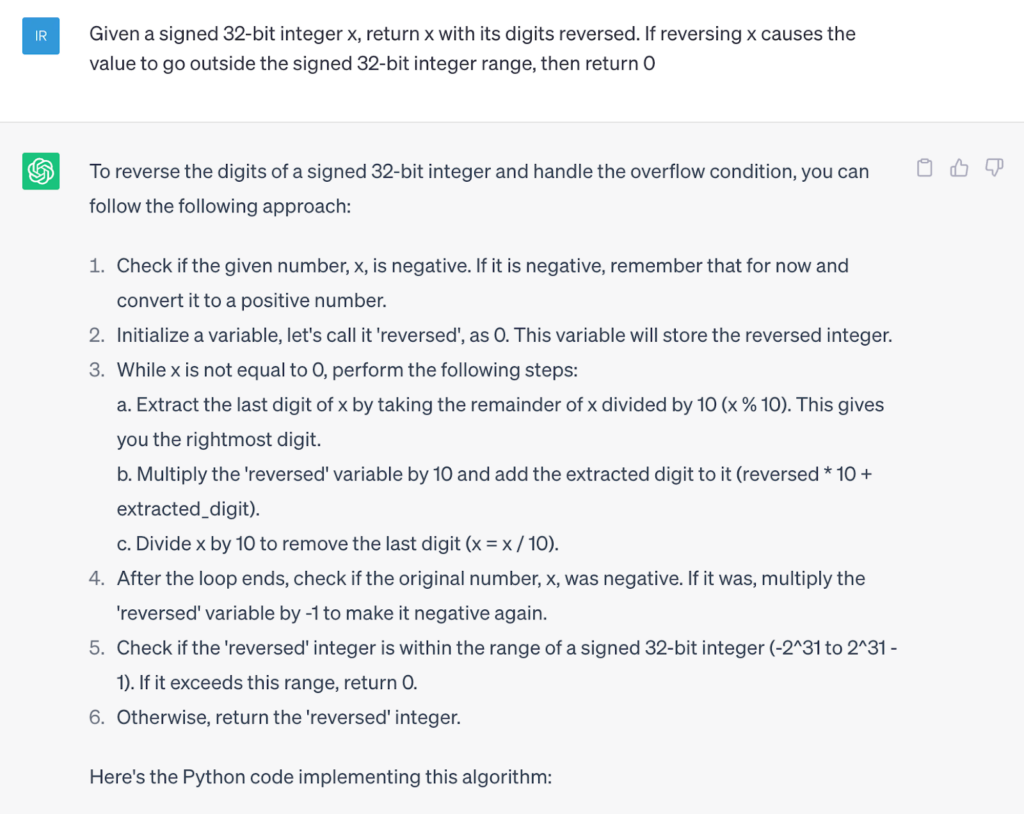
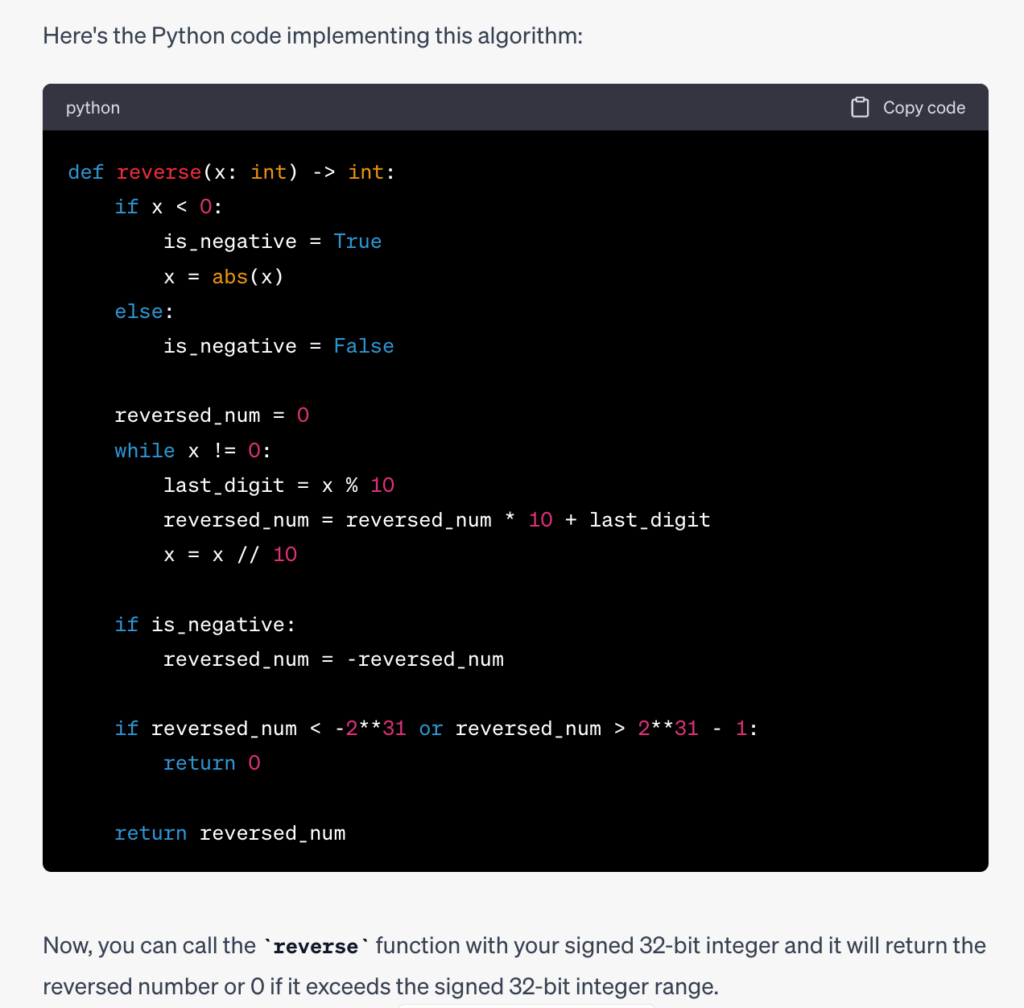
Code review
Code review is a vital component, which involves systematic examination and assessment of the source code. This stage is aimed to ensure problem identification and resolution, codebase alignment and maintainability, as well as security of the to-be-launched product.
At this project stage, ChatGPT can be used to streamline:
- Code analysis – the chat can provide valuable feedback on potential syntax-related errors, code smells, and anti-patterns
- Flaw identification – the chat can review code logic to identify potential issues or so-called edge cases, and suggest alternative approaches
To note: ChatGPT shouldn’t be used for proprietary code review due to security concerns – the chat saves data to refine its algorithms, which might cause leakage.
Automated testing
Automated testing is used to create real-world scenarios that simulate user-system interactions to assess software functionality and performance, as well as the overall reliability of the to-be-developed application. Incomplete coverage, delayed detection, maintenance overhead, and insufficient application security are just some problems that might occur when this stage is underestimated.
IT teams might use ChatGPT for:
- Test case generation – software specialists can discuss determined requirements with the smart chat to generate test cases and ensure testing coverage
- Test strategy planning – software engineers can get data-driven guidance from the intelligent chatbot on different testing methodologies for robust testing strategies
Bug fixing
Bug fixing typically involves the identification, analysis, investigation, and resolving of occurred code defects. This component is important for assuring software performance, regulatory compliance, end-use satisfaction, and security.
Software developers might leverage ChatGPT for:
- Error analysis – the bot can assist in understanding error messages, stack traces, log outputs, and more
- Debugging assistance – the chatbot can brainstorm potential causes and suggest suitable techniques
Side note: Large companies are already investing millions in products such as GitHub Copilot, which turns natural language prompts into coding suggestions.
Future prospects
In the not too distant future, ChatGPT could become indispensable, providing numerous advanced capabilities. With future digital innovation, ChatGPT implementation could provide context-aware assistance and offer personalized recommendations, precisely tailored to individual project requirements.
What’s more, as the smart chatbot will evolve, it may also leverage various decentralized learning approaches. That means that the intelligent chatbot could ensure data privacy and security and allow software developers to train personalized models, opening up promising opportunities.
Code assistance
ChatGPT could potentially be used for:
- Context-aware completion
- Intelligent synthesis
- In-depth understanding and interpretation
- Advanced debugging and trouble-shooting
- Repository and version control system integration
- Personalized recommendation considering individual coding style and preferences
Code refactoring
ChatGPT could also be used for:
- Automated refactoring, including suggestions and implementation
- Predictive refactoring using historical pattern analysis
- Intelligent restructuring and optimization
- Code analysis, pattern recognition, workflow and pipeline support
Project management
The chatbot could support project managers by analyzing project requirements for better task prioritization, estimating efforts to meet established deadlines, provide updates to monitor task completion and milestones, and potentially analyze metrics if given data access.
Better collaboration
The chatbot can improve collaborative sessions by facilitating real-time reviews, improvement suggestions, knowledge sharing and onboarding, and thought-out task management.
The benefits of using ChatGPT for software development
To achieve greater performance, it’s important to remember that even ChatGPT requires human supervision – its responses should always be treated as recommendations rather than definite source-of-truth.
There are great opportunities opening up when using the chat:
- Solution prototyping
You can use the smart model to describe your concept and discuss:
- Overall feasibility
- Potential challenges and trade-offs
- Initial pseudocode, UI/UX design, high-level architecture, component interactions
- Coding patterns, stack selection
- Efficient problem-solving
You can use the intelligent tool to discuss your problem and generate potential solutions:
- Error analysis – the bot can assist in diagnosing the issues and suggesting possible causes
- Algorithmic guidance – the bot can provide valuable insights into efficient data structures
- Enhanced productivity
The chatbot can provide instant answers and guidance regarding different programming-related problems. Instead of searching through comprehensive documentation and forums, software developers can ask the bot to retrieve specified information, saving time and cost.
- Greater accessibility
The chatbot is available non-stop online, providing assistance no matter the language, time zone, or else. What’s more, software developers can use the bot to study and understand programming-related concepts, which empowers skill expansion.
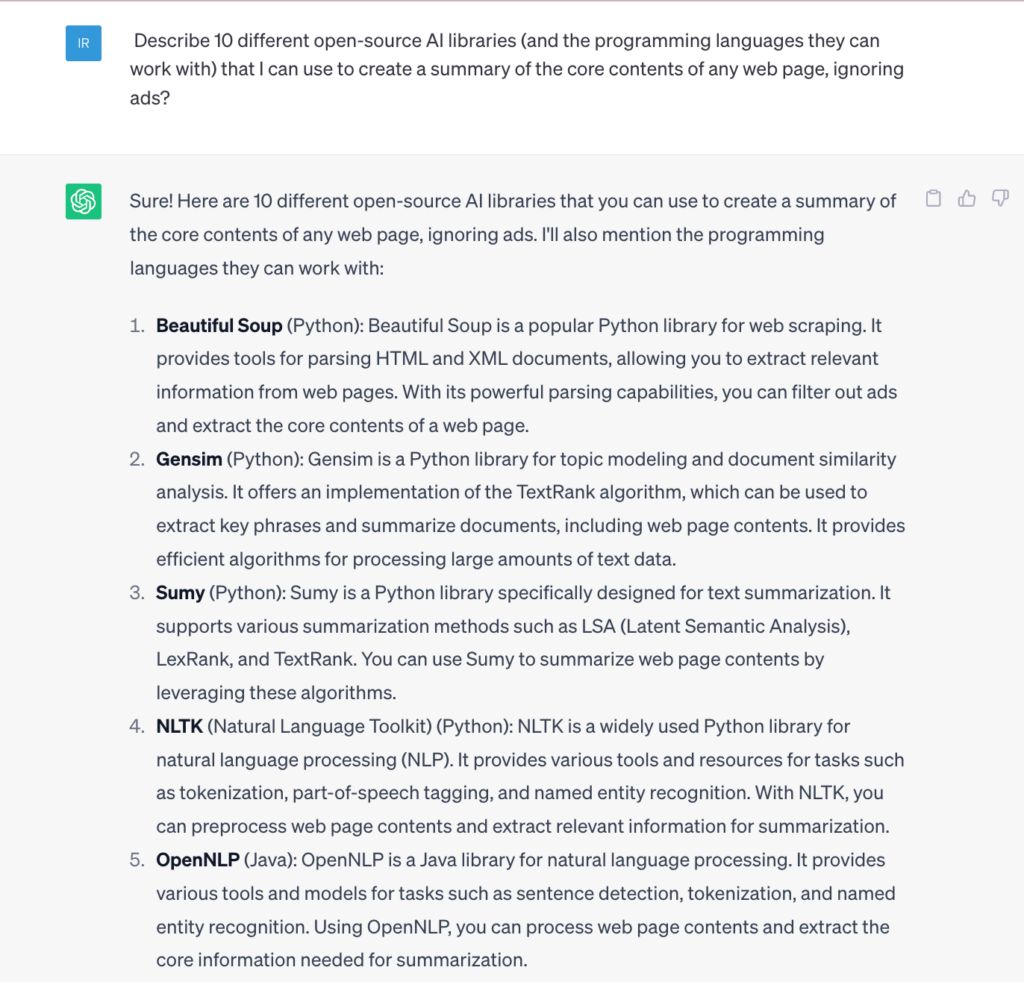
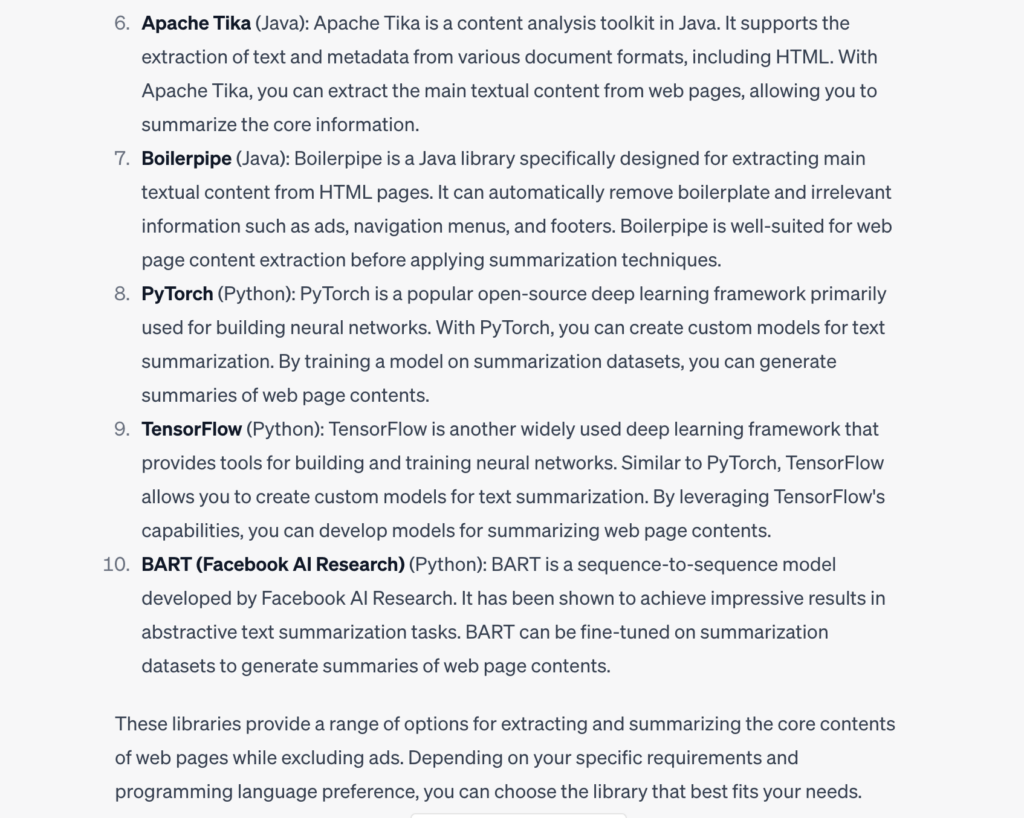
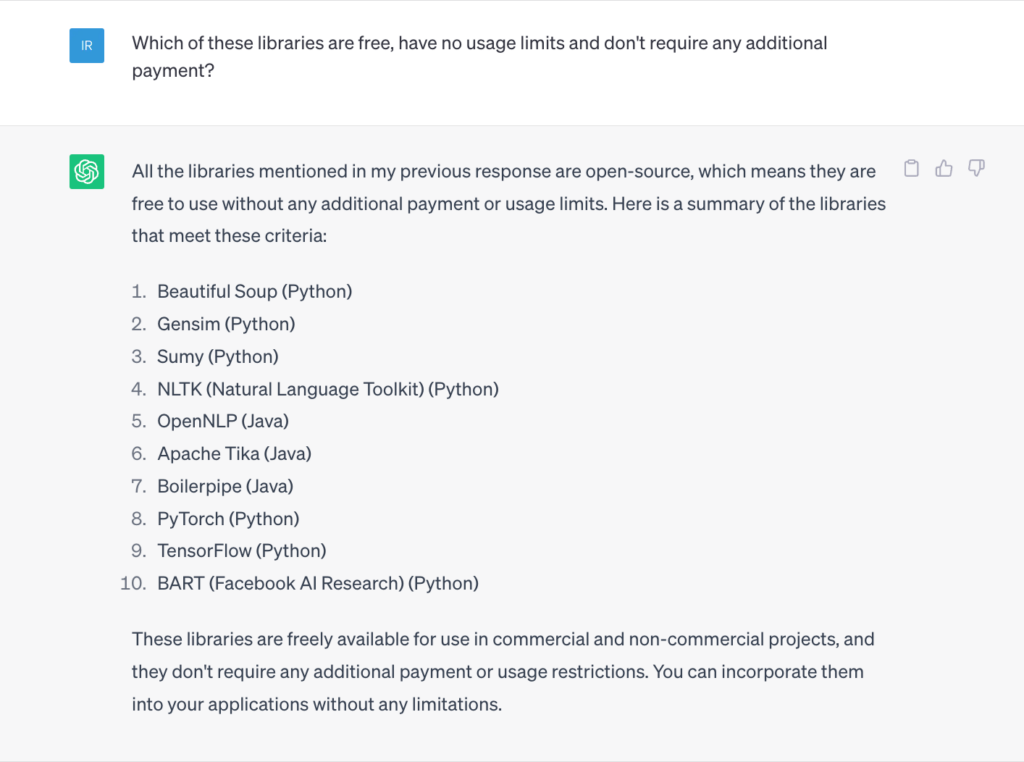
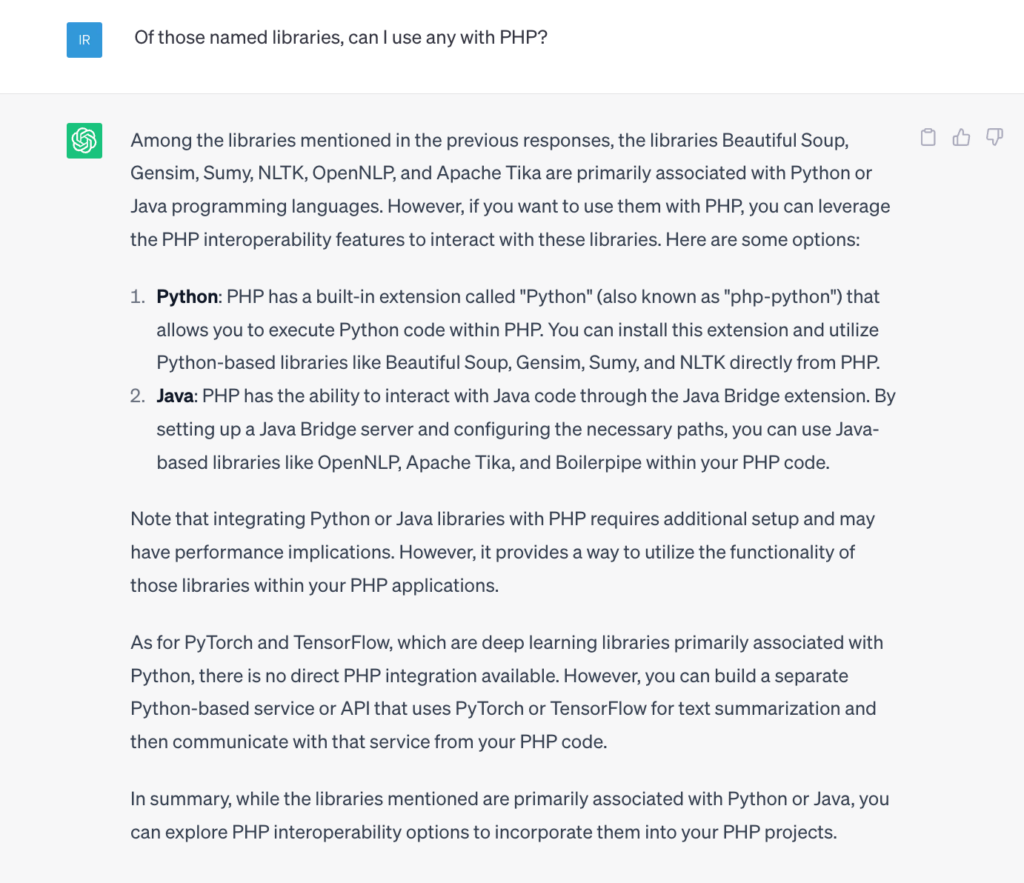
The limitations and dangers to consider
To mitigate potential complications, it’s recommended to utilize ChatGPT exclusively for gathering new insights and exploring potential solutions.
There are several limitation and risks one should always consider before using the bot:
- Context lacking
ChatGPT might provide responses that are technically correct but irrelevant or inadequate in the given context. It may not grasp specific requirements and constraints, which might be misleading.
- Knowledge incompleteness
ChatGPT isn’t always aware of the latest advances (programming languages, frameworks, libraries, and others). It’s important to cross-reference every recommendation with trusted, up-to-date resources.
- Data bias
The chatbot is trained on large data amounts originating from Internet material, which includes biased data. This means the model can reflect or amplify incorrect information, potentially causing more harm than good.
- Security concerns
The chatbot may cause reputational and financial damage if endowed with sensitive, proprietary information. This means it shouldn’t have access to critical code snippets or sensitive, confidential information.
How we can help
Start leveraging artificial intelligence to drive business growth!
Abto Software delivers robust, maintainable, and secure products by leveraging computational technology. With attention to acknowledged best practices, our teams cover every project stage, from consulting, requirement specification, and prototyping, to end-to-end software development, integration, optimization, and support.
We deliver:
- .NET development
- ASP.NET development
- Web application development
- Mobile app development
- Cloud services
- Full-cycle custom software development
And hold extensive expertise in applying:


